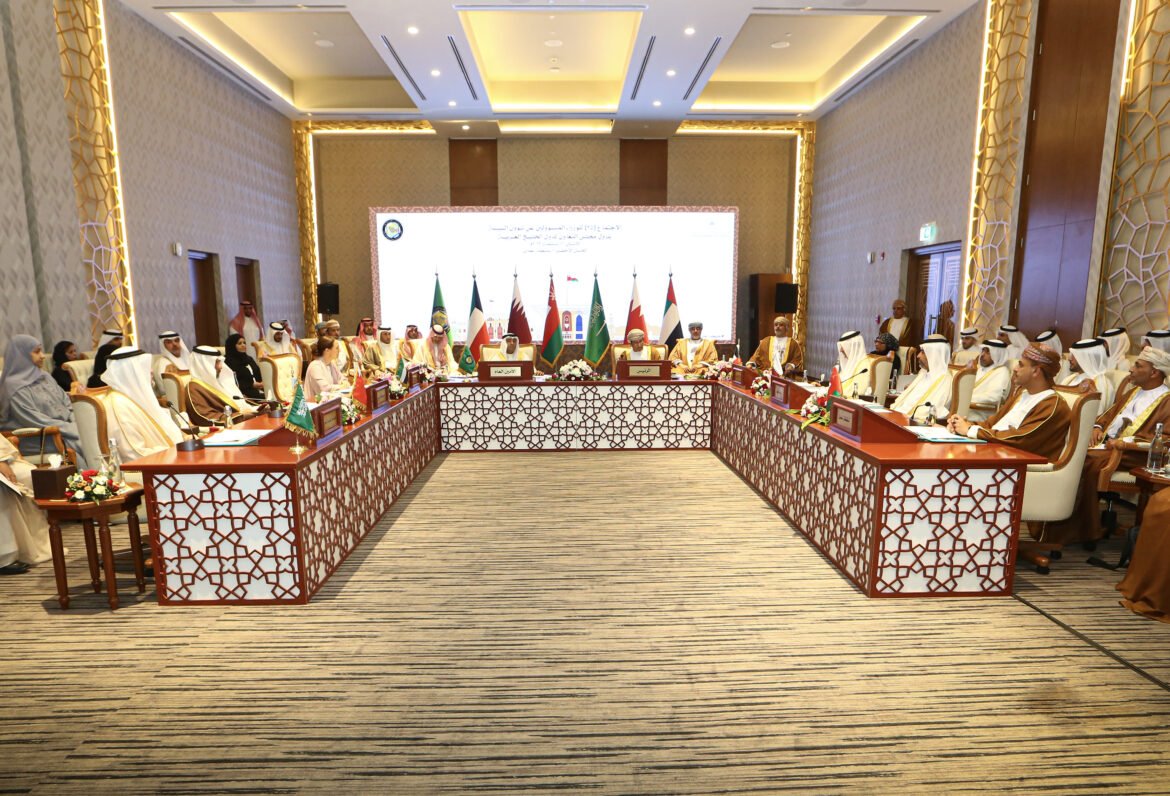The United Arab Emirates has expressed its appreciation of the consensus reached by GCC nations to proceed with the ratification of the Kigali Amendment to the Montreal Protocol on Substances that Deplete the Ozone Layer. The consensus takes into consideration the unified position of GCC and the annex to the mechanisms for ratifying the Kigali Amendments.
This came during the participation of Her Excellency Mariam bint Mohammed Almheiri, UAE Minister of Climate Change and Environment, UAE, at the 25th meeting of the GCC Committee of the ministers responsible for climate and environment affairs. The meeting was hosted by the Sultanate of Oman in Al Jabal Al Akhdar, Al Dakhiliyah Governorate.
Addressing the meeting, Her Excellency Almheiri said: “The phase-out of hydrofluorocarbons (HFCs) is one of the most important topics we have been discussing over the past years and to reach a consensus. Our cooperation has yielded results, and the UAE applauds the agreement to ratify the Kigali Amendment to the Montreal Protocol. The UAE also hopes to work to speed up the ratification process with the GCC nations.”
Her Excellency said that reaching the consensus highlights the commitment of GCC nations in reducing emissions and mitigating the effect of climate change. She invited all ministers and officials to attend the upcoming COP28 Conference in the UAE, which will have a significant impact on showcasing the region’s stature in promoting global climate action.
The Kigali Amendment will help curb up to 0.4°C of global warming in this century while continuing to protect the ozone layer. The amendment will substantively contribute to the goals of the Paris Agreement.
HFCs are organic compounds frequently used as refrigerants in air conditioners and other devices as alternatives to ozone-depleting substances controlled under the Montreal Protocol. While HFCs themselves do not deplete the ozone layer, they are extremely potent greenhouse gases with global warming potentials that can be three times higher than carbon dioxide.
The agenda of meeting included sessions on several key themes such as the environmental landscape and trends in the GCC countries, the decision regarding non-tariff restrictions on the environment, the decisions of the Ministerial Council at its 154th session to establish a Gulf pavilion at COP28, other strategic plans of the Committee and the Gulf Environmental Portal.
They also discussed cooperation with the United Nations Environment Programme (UNEP), and the need to develop an international legally binding instrument on plastic pollution, as well as the Convention on the Conservation of Wildlife and their Natural Habitats in the GCC countries, the 16th Conference of the Parties to the United Nations Convention to Combat Desertification, and how to strengthen cooperation between the GCC countries and other nations.
The meeting made several resolutions including:
Assign specialized committees within the GCC to measure the implementation of the environmental guidelines by all the member states.
Commitment to providing full support to the Middle East Green Initiative, as underlined by the GCC Supreme Council during its 42nd session.
Promoting collaboration with the General Secretariat to share initiatives in combating climate change, and to highlight them at the General Secretariat’s pavilion at COP28 from November 30 to December 12, 2023. The submission deadline is set for mid-October 2023.
Continue hosting seminars, conferences, and workshops at the national level, specifically aligned with the strategic plan of the Ministerial Committee
To conduct regular meetings with environmental and media experts in the GCC countries.
Approve GCC’s position and annex regarding the implementation of United Nations Environment Assembly Resolution (5/14) on ending plastic pollution, including marine plastic pollution, “towards a legally binding instrument.”
Approve the unified system on substances depleted of the ozone layer by the GCC countries
Approve a unified Gulf position and annex regarding the mechanisms for ratifying the Kigali Amendments to the Montreal Protocol.
Announce the consensus of GCC countries on ratifying the Kigali Amendment to the Montreal Protocol.
Confirm participation by the GCC nations and the General Secretariat at the 77th meeting of the Standing Committee of the Convention on International Trade in Endangered Species of Wild Fauna and Flora (CITES), to be held in Geneva from November 6 to 10, 2023.
Support the efforts of the Sultanate of Oman in conserving the frankincense tree and advocating its inclusion in the Convention on International Trade in Endangered Species of Wild Fauna and Flora (CITES).
Support the member states and the General Secretariat to ensure the successful participation in the GCC Pavilion at the Horticultural Expo 2023 Doha.
The Environmental Authority of the Sultanate of Oman will invite the member states and the General Secretariat to participate in the Arab Environmental Forum, scheduled to be held on October 24-25, 2023, in Muscat, Oman. The countries are invited to actively participate in the forum and submit working papers.
Principle agreement on the proposal to develop a Gulf Environmental Index, with the Environmental Sustainability Committee of the GCC assigned to study the matter in collaboration with the GCC Statistical Center.
Support the efforts of the Kingdom of Saudi Arabia in hosting the UN Convention to Combat Desertification in 2024, and work towards formulating resolutions that enhance efforts in reducing land degradation, restoring degraded lands, and mitigating the impacts of drought.



